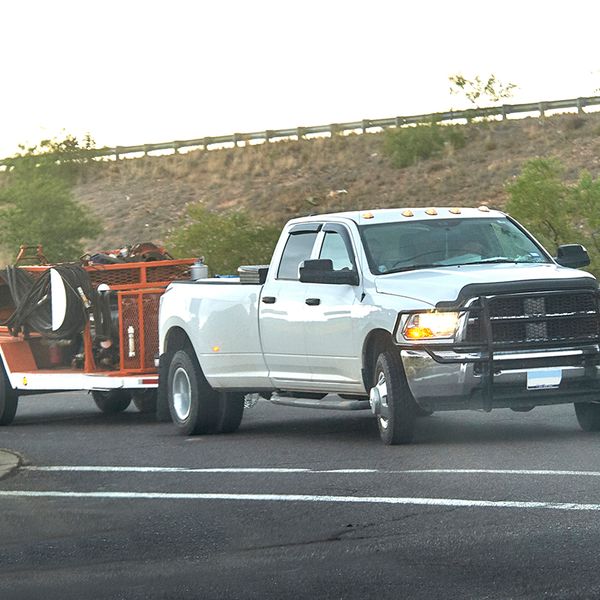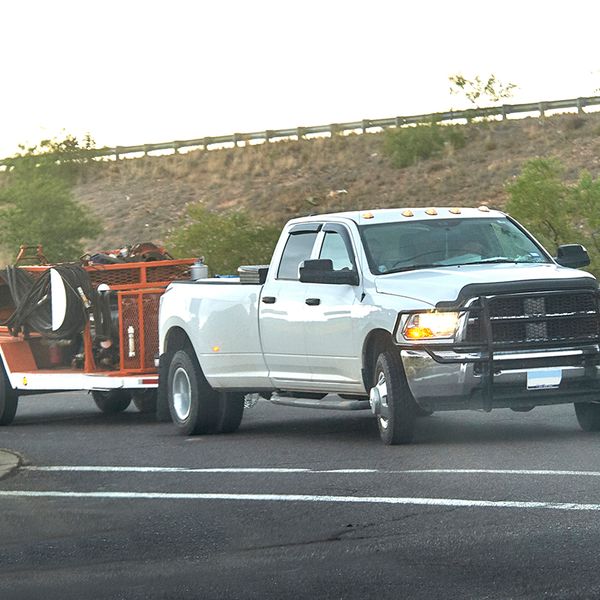Understanding the commercial vehicle classification for pickup trucks in Canada
Many companies in Canada use pickup trucks in their business operations. The use of pickup trucks is particularly common in companies involved in landscaping, construction work, or even small equipment rentals. But sometimes, these companies fail to consider that some larger pickup trucks can subject these companies to commercial vehicle safety regulations in Canada. In Canada, the classification of a vehicle as a commercial motor vehicle (CMV) is decided by several factors, including its weight, usage, and the type of materials it transports. Pickup trucks, commonly used for personal and commercial purposes, can be classified as CMVs under certain conditions.
Weight and usage considerations
Generally, a pickup truck is considered a CMV in most Canadian jurisdictions if the registered GVW exceeds 4,500 kilograms (approximately 9,921 pounds) or if the vehicle is used for commercial purposes, such as transporting goods or passengers for hire.
Provincial regulations may have specific definitions and requirements. For example, in Ontario, all pickup trucks are considered CMVs, but a Commercial Vehicle Operator’s Registration (CVOR) certificate is only needed if the truck’s actual or registered gross weight exceeds 4,500 kilograms.
If you tow a trailer with your pickup truck in Canada, it might still be defined as a CMV if the combined registered gross weight of the truck and trailer exceeds 4,500 kilograms. The purpose a pickup truck is used for is key to deciding if it is a CMV. If the vehicle is used for commercial purposes, such as transporting goods, it falls under the CMV category. This includes pickup trucks used for deliveries, construction, landscaping, and other commercial usage and requires companies to follow specific regulations.
Regulatory implications
The classification of a pickup truck as a CMV has several regulatory implications. Suppose your company pickup truck is classified as a CMV. In that case, there are several steps you need to take to ensure compliance with regulations that include maintaining detailed records of all inspections, repairs, and maintenance activities, ensuring your drivers have the appropriate driver’s license, ensuring your drivers comply with the hours-of-service regulations, conduct regular vehicle inspections and if you’re in Ontario, you’ll need a Commercial Vehicle Operator’s Registration (CVOR) certificate.
Transportation of Dangerous Goods
Another condition in deciding whether a pickup truck is a CMV is the transportation of dangerous goods. Any vehicle regardless of its size, which transports certain amounts of dangerous goods is classified as a CMV. Pickup trucks used for transporting such materials must follow regulations about labeling, handling, and driver training.
Are you in compliance?
Many people assume that smaller vehicles like pickup trucks may be exempt from the hours-of-service rules, especially when a private company uses them, do not have air brakes, and may not require a commercial class driver’s license. But many pickups, especially when used with a trailer, are regulated as CMVs because they are used for business purposes, and they exceed 4,500 kilograms registered gross weight. So, in summary, a pickup truck in Canada can be classified as a CMV, whether used for personal or commercial purposes, so understanding these regulations is essential for anyone using a pickup truck in Canada.
Key to remember: Understanding these regulations is key for anyone using a pickup truck in Canada and by following to these guidelines, you can ensure you are complying.



















































